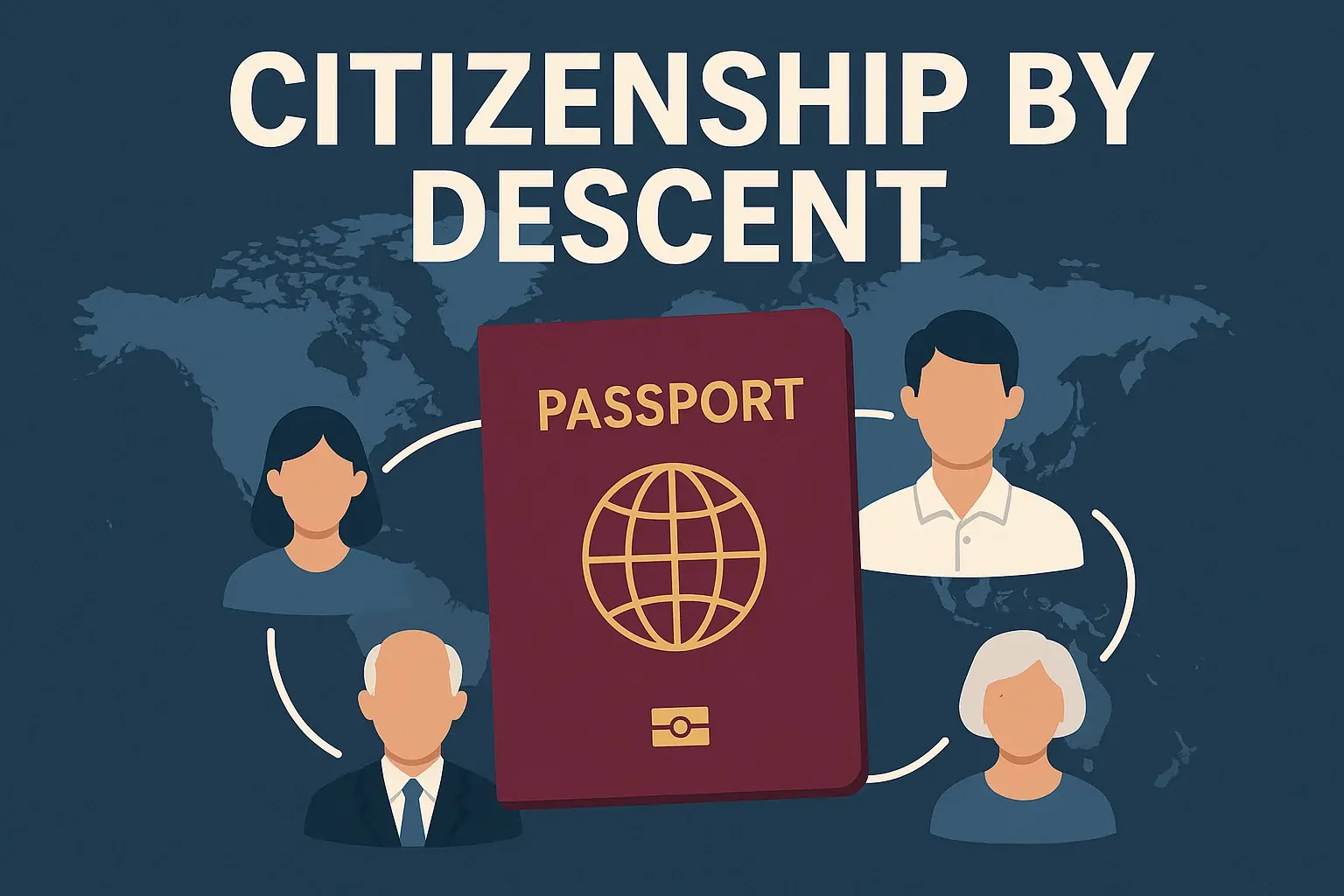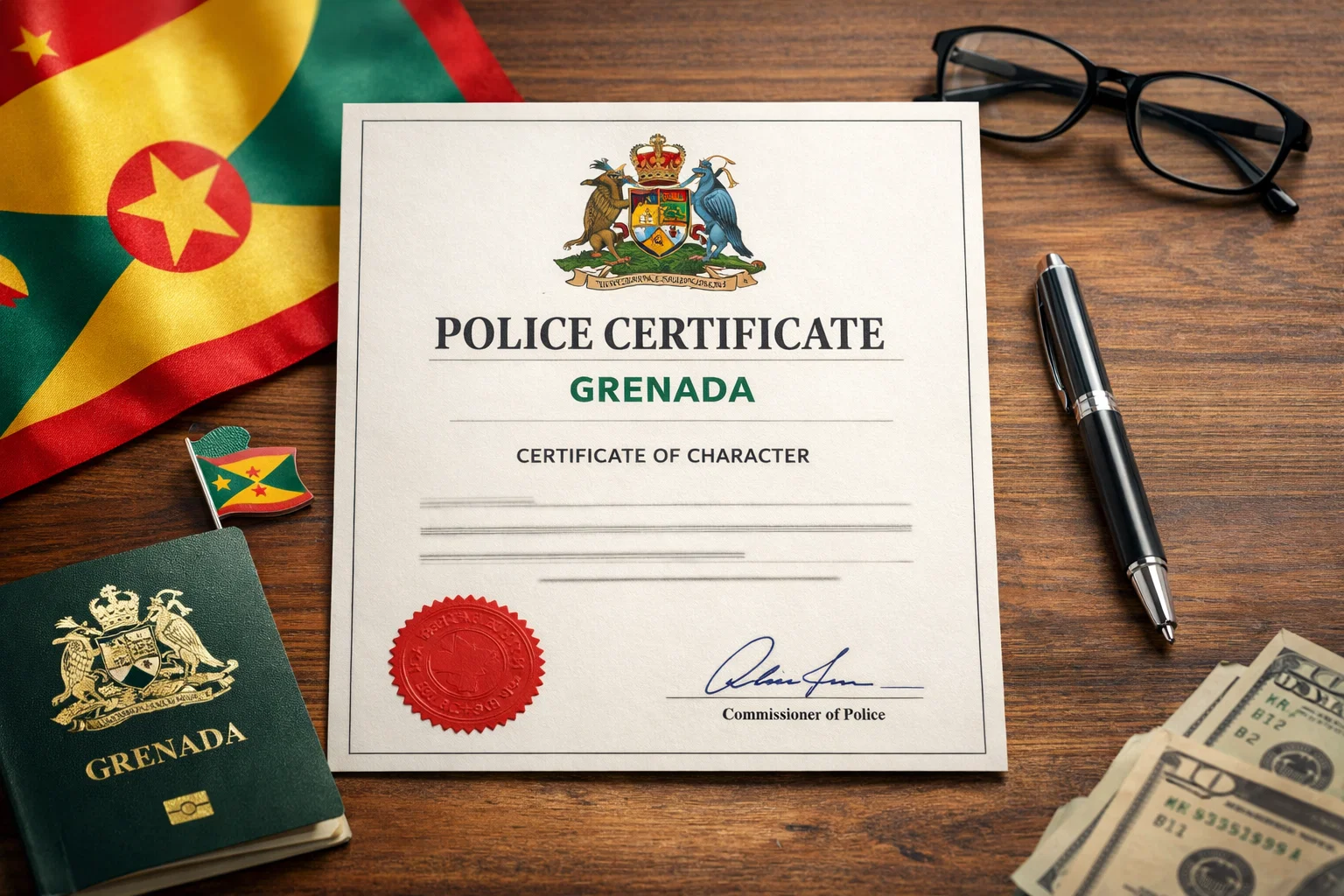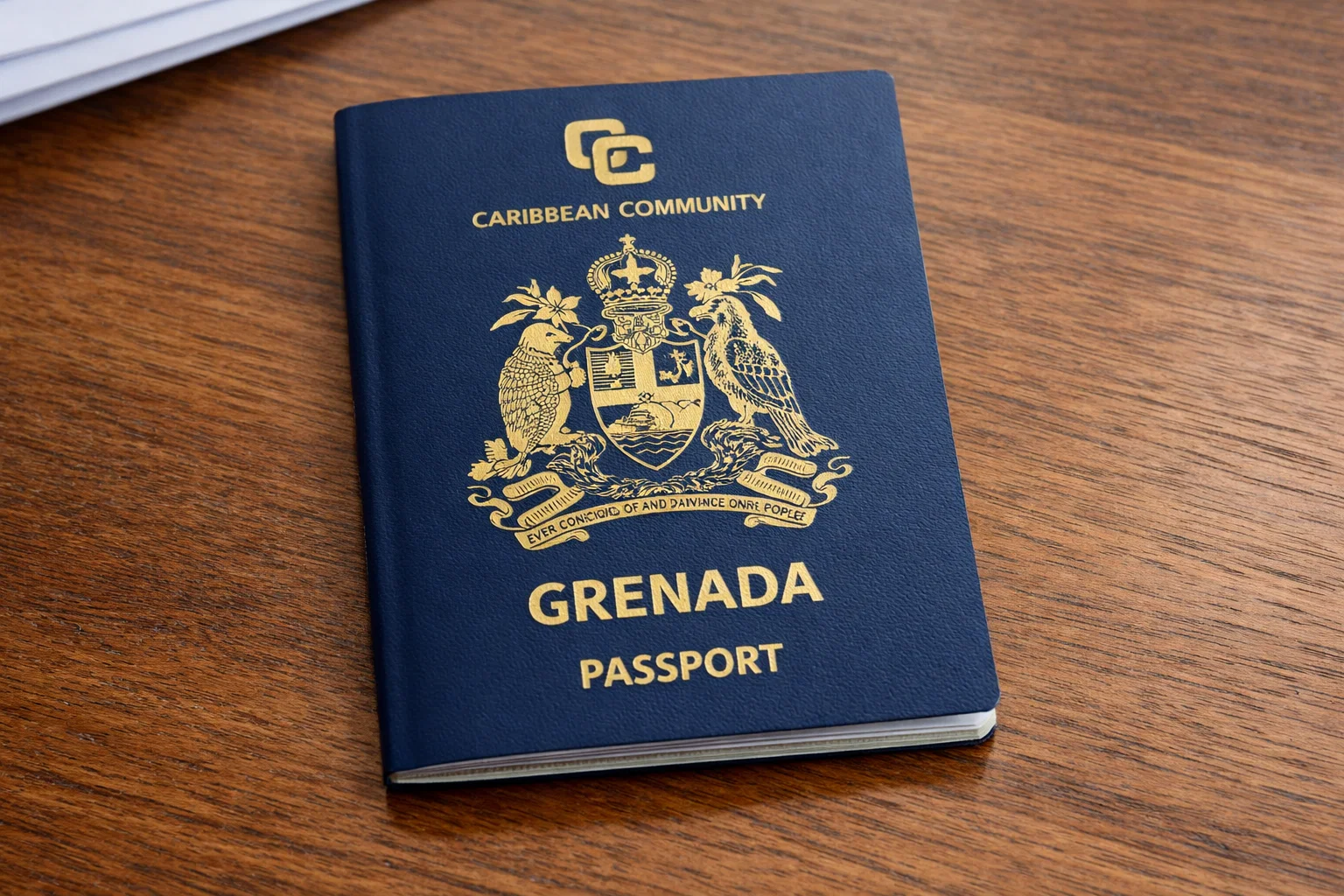In today’s uncertain world, having a second passport has become more than a luxury; it’s a safety net. From gaining full EU rights and global mobility to securing a reliable “Plan B” in times of political or economic instability, citizenship by descent is one of the most appealing pathways. Unlike other routes, it doesn’t require long years of residency or expensive investments; if your ancestry qualifies, it’s already your legal right.
Put simply, citizenship by descent (jus sanguinis, or “right of blood”) means you can claim nationality through your parents, grandparents, or in some cases even great-grandparents. For millions of people worldwide with Italian, Irish, Polish, Portuguese, or other European heritage, this possibility is closer than ever.
Interest in ancestral passports has surged dramatically recently. For example, searches for Irish citizenship by descent spiked in the United States by over 200% in 2020, and Italy, Portugal, and Poland have also reported record numbers of applications from their global diasporas. The trend is clear: more people are rediscovering their roots as a gateway to new opportunities.
What is Citizenship by Descent?
Citizenship by descent, also known as jus sanguinis (Latin for “right of blood”), is the principle that nationality can be passed down through family lineage rather than by place of birth.
In simple terms, if one of your parents, grandparents, or sometimes even great-grandparents was a citizen of a particular country, you may be entitled to reclaim that citizenship today.
It differs from jus soli (“right of the soil”), which grants citizenship automatically to anyone born on a nation’s territory, common in countries such as the United States or Canada.
Most European countries, on the other hand, follow jus sanguinis rules to preserve ties with their diaspora communities.
Historical & Legal Context
The idea of Jus sanguinis has its origins in centuries past, as European states implemented it to ensure that the children of emigrants would maintain a connection to their homeland.
This principle became especially important in the 19th and 20th centuries, when millions migrated to the Americas, Australia, and elsewhere.
Today, jus sanguinis remains enshrined in many nationality laws across Europe, underpinning modern “citizenship by descent” programmes.
Key Benefits of Citizenship by Descent
For many, applying for citizenship by descent is not only about paperwork; it’s about unlocking opportunities that would otherwise take years of residence or large financial investments to achieve. Whether practical freedoms or emotional ties entice you, the benefits are substantial.
In short, citizenship by descent offers a rare combination of mobility, security, and belonging. It’s one of the most cost-effective ways to obtain a second nationality, making it an attractive option for both practical and personal reasons.
Country-by-Country Overview
50+ countries worldwide offer some form of citizenship by descent (ancestry). Below are the most sought-after options:
At-a-Glance Comparison
*Timelines are indicative and depend on consular loads, completeness of documents, and local processing rules.
Tier-1
Portuguese Citizenship by Descent (grandparent route; Sephardic notes)
- Grandchildren of Portuguese citizens: May acquire nationality by descent if they demonstrate an effective connection to the Portuguese community (e.g., language, participation, parent’s registration).
- Sephardic route: Significantly tightened in 2024; the current framework typically requires residence and no longer functions as a purely ancestry-based fast track. Treat older online guides with caution.
- Dual citizenship: Explicitly allowed under Portuguese law.
Italian Citizenship by Descent (consular backlogs, “1948 cases”, 2026 reform)
- What changed (2026): Italy enacted Law 36/2025, introducing an “effective connection” test and limiting routine jure sanguinis claims to the parent or grandparent level. Consulates are in the process of updating procedures; please anticipate more rigorous documentation requirements for your living ties to Italy (language, culture, registry events, etc.).
- Maternal-line “1948 cases”: If your lineage passes through a woman before 1 Jan 1948, the administrative route is blocked; many applicants use the court (Tribunale) route to address historic gender discrimination.
- Backlogs: Processing remains highly uneven across consulates; consider municipal filings in Italy where feasible and lawful.
- Dual citizenship: Permitted under Italian law (since Law 91/1992).
Greece Citizenship by Descent (descent through parent; extended via registration)
- Who qualifies: Children of at least one Greek parent are citizens automatically, even if born abroad. Grandchildren may qualify, but only if their parent first secured recognition as Greek before the grandchild’s birth.
- Process: Births must be registered in the local municipal roll (dimotologio) and, for males, the military roll (mitroologio). Applications abroad go through Greek consulates, which liaise with municipal offices in Greece.
- Challenges: Processing can be slow due to archival delays and strict checks on transliterations of Greek names. Missing or inconsistent records (especially older certificates) are a frequent hurdle.
- Dual citizenship: Permitted under Greek law; citizens are considered solely Greek when in Greece.
Ireland Citizenship by Descent (FBR: grandparent rule)
- Core rule: If you have a grandparent born on the island of Ireland, you can register on the Foreign Births Register and become an Irish citizen. Children born after you register can continue the line abroad.
- Process: Evidence of the Irish-born grandparent (long-form birth certificate), civil records linking each generation, and your identity documents.
- Dual citizenship: Ireland permits it.
Spain Citizenship by Descent (Democratic Memory Law — deadline 22 October 2025)
- Who qualifies: Children and grandchildren of Spaniards exiled or who lost nationality for political/ideological reasons (and other specific categories) can opt for nationality by origin under Law 20/2022.
- The deadline is 22 October 2025, and you must book the consular appointment by this date to ensure coverage. Expect heavy demand in the Americas.
- Renunciation: DML applicants are not required to renounce their current nationality.
Malta Citizenship by Descent (strong diaspora provisions; often workable to 3rd generation)
- By registration (descent): The Maltese Citizenship Act (Cap. 188) provides for registration of direct-line descendants of Maltese-born citizens, subject to specific conditions (including parent/ancestor criteria). In practice, third-generation claims can be possible where the statutory conditions align.
- Authority & guidance: Community Malta Agency oversees citizenship; Malta has recognised dual and multiple citizenship since 2000.
Germany Citizenship by Descent (standard descent + powerful restitution)
- Standard descent: German citizenship passes from a German parent (subject to time-specific statutory rules).
- Restitution: Descendants of people who lost citizenship due to Nazi persecution can (re)acquire citizenship in Germany under restored pathways, including children, grandchildren, and great-grandchildren.
- Dual citizenship: Since June 27, 2024, Germany has accepted multiple nationalities for new citizens; Germans who naturalise elsewhere no longer automatically lose citizenship.
Poland Citizenship by Descent (documentation-heavy, but no fixed generational cap)
- Principle: Poland recognises citizenship by blood; there is no statute-set generational limit, provided you prove uninterrupted citizenship after 1918/1920 (many cases hinge on military service, naturalisation abroad dates, and interwar laws).
- Process: You usually apply for confirmation of possession of Polish citizenship; expect archival work across Polish and foreign registries.
- Dual nationality: Permitted/tolerated; Polish citizens are treated as Polish within Poland (use a Polish passport at the border).
Austria Citizenship by Descent (strict generally; generous §58c restitution)
- By descent: If a parent was an Austrian citizen at your birth, you’re typically Austrian by descent (subject to historic equal-treatment cut-offs).
- Restitution (§58c StbG): Direct descendants (children, grandchildren, great-grandchildren) of victims of National Socialism can acquire Austrian citizenship by declaration without giving up existing citizenship.
- Dual citizenship: Generally not permitted, except in certain cases (by birth, permitted retention, and §58c restitution).
Tier-2
Cyprus Citizenship by Descent
Citizenship normally passes from a Cypriot parent. Limited grandparent transmission exists in cases of diaspora children born abroad who would otherwise be stateless or excluded; rules are strict and tied to registration.
Croatia Citizenship by Descent
Ethnic Croats abroad and descendants of Croatian citizens can apply. Proof of Croatian ethnicity and cultural ties may be required alongside descent. Dual nationality is tolerated.
Lithuania / Latvia Citizenship by Descent
Both have restoration programmes for descendants of citizens pre-1940 Soviet annexation.
Generally extends to grandchildren and great-grandchildren, provided no voluntary renunciation occurred. Often popular with North American diaspora.
Israel Citizenship by Descent (Law of Return)
Not technically “citizenship by descent” but by ethnic/religious ancestry: any Jew (and children, grandchildren, and spouses) can obtain immediate immigration rights and citizenship under the Law of Return.
Hungary Citizenship by Descent
Ethnic Hungarians abroad may naturalise with a shortened residency path if they can prove ancestry and pass a basic Hungarian language exam.
The Americas
- Mexico: Citizenship passes automatically to children of Mexican citizens, even if born abroad (registration required).
- Argentina: Broad jus soli system, but descent also recognised for children born abroad to Argentine parents.
- Brazil: Children of Brazilian citizens born abroad are considered Brazilian if registered at a consulate or if they later establish residence in Brazil.
UK Ancestry Visa
Who it’s for: Commonwealth citizens aged 17+ with a UK-born grandparent, who intend to work in the UK.
It’s not citizenship, but it can lead to Indefinite Leave to Remain (after 5 years) and later British citizenship through naturalisation.
Spouses/partners and dependent children can usually join.
How to Apply for Citizenship by Descent
The path to an ancestral passport may look daunting, but most applications follow the same universal steps. Here’s how to turn family history into legal nationality.
- Confirm Eligibility
Map out your family line and check whether your parent, grandparent, or great-grandparent meets the country’s rules. Watch for cut-off years (e.g., Italy pre-1948 maternal lines) and naturalisations that might have broken the chain. - Gather Vital Records
Collect certified copies of birth, marriage, and death certificates for each generation. You may also need naturalisation records, census entries, or church documents to fill in gaps. - Authenticate & Translate
Most countries require documents to be legalised or apostilled and then translated by a sworn/certified translator into the national language. Accuracy matters — a date or name mismatch can delay the case. - Submit the Application
File your dossier at the relevant consulate, embassy, or ministry. Some allow applications inside the country (e.g., municipal registries in Italy), but most start abroad. - Wait for Processing
Timelines vary: some take a few months, others several years depending on demand and consular backlogs. Patience and persistence in following up is key. - Finalise Citizenship & Passport
Once approved, you’ll be added to the national registry. From there, you can apply for an identity card and passport. In many countries, your children automatically inherit citizenship once you're recognised.
Master Documentation Checklist
Collecting these records can feel like detective work, but they form the backbone of a successful application. The more precise and complete your file, the smoother the process will be.
If gaps appear, such as missing certificates or conflicting names, professional genealogists, lawyers, and national archives can often help bridge the evidence. Taking time to build a watertight dossier now saves months, if not years, of delays later.
Comparing Citizenship by Descent vs. Other Routes
While citizenship by descent (jus sanguinis) is often the fastest and least expensive route if you qualify, it’s not the only pathway to a second passport.
Comparing it with naturalisation, investment (“Golden Visas”), and birthright (jus soli) highlights why descent is so attractive and where its limitations lie.
Frequently Asked Questions
Conclusion & When to Seek Professional Help
Applying for citizenship by descent can feel overwhelming, archives to chase, translations to commission, forms to complete. Yet for those who persevere, the reward is lasting: a second passport that opens doors for you and generations to come. It’s complex, but worth it.
If your case is straightforward and you have easy access to family records, you may be able to manage the process yourself with patience and persistence. But in situations where:
- Records are missing, inconsistent, or written in unfamiliar languages,
- Your family line involves historic legal quirks (such as Italy’s 1948 maternal line rule), or
- You’re applying through a heavily backlogged consulate,
…it’s wise to seek professional help. Immigration lawyers, genealogists, and accredited translators can save months of frustration and prevent costly errors.
 Portugal
Portugal
 Spain
Spain Italy
Italy Greece
Greece Grenada Citizenship by Investment
Grenada Citizenship by Investment








.svg)